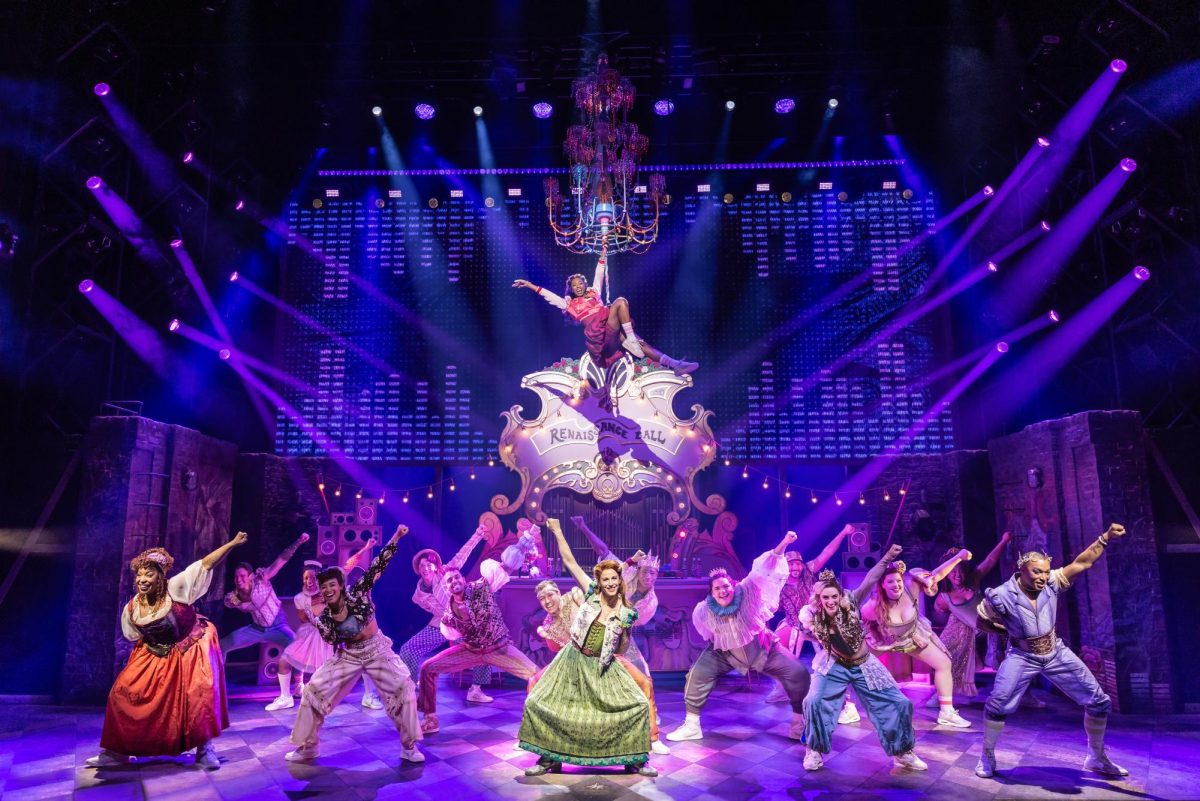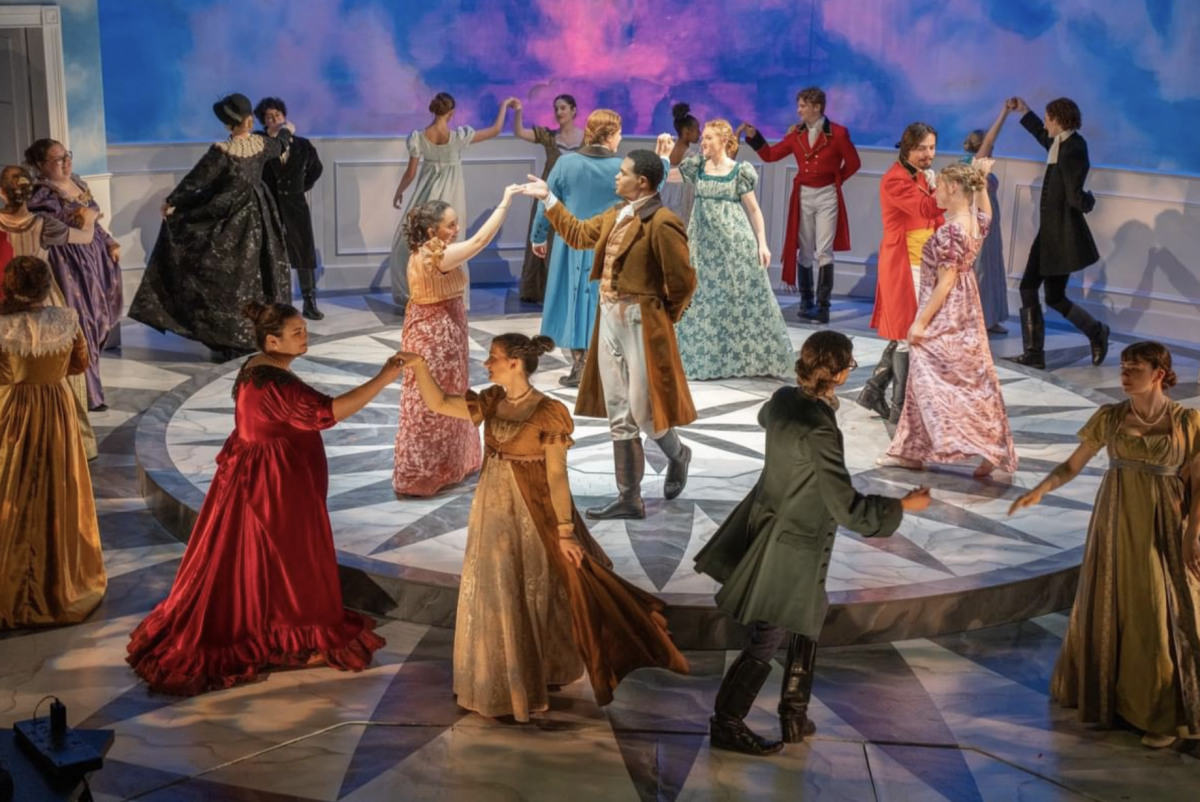There's a really great scene in John Waters' "Polyester" where Tab Hunter plays a guy who unknowingly stumbles into an AA meeting and is asked to introduce himself. "My name is Todd," he says. The drunks stare back at him incredulously and say "And? Aaaaand?!?" waiting for him to add, " … and I'm an alcoholic."
I bring up this scene because it pretty much sums up my feelings about a lot of the movies of 2005. All year, I felt like the drunks, watching important movies make their way up to the front, clear their throats, and say absolutely nothing of consequence. Everybody agreed that one-time Oscar hopefuls "Jarhead," "The Libertine" and "Memoirs of a Geisha" were duds, but I was left wanting by some of the most praised films of the past year.
Neither "Capote" nor "Batman Begins" moved me (although, believe it or not, they'd work well on a double bill). I guess I wasn't smart enough for "Me and You and Everyone We Know" or "Wallace & Gromit," although I prefer to tell myself that they just sucked. Nor did I understand the appeal of the odious "Sin City."
"Good Night, and Good Luck" featured a knockout performance by Ray Wise and some wonderful cinematography, but it was strangely amorphous. I don't think anybody outside of the vice president's office believes that a free press is a bad thing, but Clooney just kept pushing that open door. We get it: First Amendment — good. Sweaty, alcoholic senators who call everything that moves a commie — bad. Thanks for clearing that up.
The same problem applied to the laughable "Syriana," which provided some truly shocking revelations about the oil industry for people who haven't watched the news or read a newspaper for the last, oh, I don't know, 40 years. Hell, at least the crazy delicious popcorn epic "Sahara" had some interesting, if slightly shrill, insights into the nature of conflict in the developing world. "Syriana" couldn't even muster good old-fashioned outrage.
For all its transcontinental esoteric musings about absolutely nothing, "Syriana" wasn't the most pointless movie of the year; that honor belongs to David Cronenberg's "A History of Violence," a horribly manipulative B-movie that is being heralded as some sort of masterpiece. God knows why. I'll never understand why critics praise Cronenberg's courage in tackling America's obsession with violence when he has spent his whole career (and the entire second half of this movie) catering to that exact same infatuation. At least the similarly themed "Derailed" and "Match Point" never shied away from their B-movie roots and never tried to make their way around the coo-coo-ca-choo political ideology inherent to all revenge movies.
Two of the most controversial movies of the year, "Brokeback Mountain" and "Munich," were both well done, but it felt as if both Ang Lee and Steven Spielberg were trying to make sure they covered all the politically correct bases.
Still, though, consider it a good year for movies. What was especially interesting is that many (but not all) of the best movies this year came not from the world of independent film, but from medium-budget studio fare with big-time directors and stars. Was this an aberration or is the material getting better? Whatever the case, 2005 was a wonderful year, so much so it was difficult for me to put together a top-10 list. Considering my feelings on many of the so-called "best movies" of the year, I have to say, making this list was a great chance to try to set the record straight on the truly worthy films of 2005. OK, here goes.
1) "In Good Company" — Oh, what a glorious movie. In a year of supposedly "important" movies that tackled hot-button issues like oil corruption and the freedom of the press, it was surprising that the most trenchant insights into American society came from a film unceremoniously released in mid-January. The premise is delightfully high-concept, but director Paul Weitz deals with it in understated, lovely terms, aided to no end by some glorious cinematography and a sublime acoustic soundtrack. The film itself is a deceptively simple father/son fable that examines the unique folds love, work and family have over our daily lives. The movie is delightfully old-fashioned (indeed, the whole endeavor calls to mind the work of Billy Wilder), suggesting that true satisfaction is found in the glory of doing a job and doing it right. Oh, and then there's that love story, which is simultaneously heartbreaking and exhilarating, leading up to an appropriately bittersweet conclusion. No movie better shows where America is right now and where it's headed in the future than "In Good Company." I am simply grateful for this movie.
2) "Match Point" — Woody Allen's best movie since the 1996 musical "Everyone Says I Love You" is a welcome return to form after the disastrous "Melinda & Melinda," released earlier last year. This movie may be set in England, although the class struggle it portrays is distinctly American. It is Allen at his most assured (both in terms of style and structure), tackling themes of obsession, infidelity and other very bad things.
3) "Kiss Kiss, Bang Bang" — Featherweight, in the best sense of the word. A jazzy riff on L.A. and the movies (you have to know L.A. to truly appreciate a lot of the jokes) that reinvented the film noir genre, which had grown stagnant since the last time it got shaken up, way back in 1994 with "Pulp Fiction." Look for "Kiss Kiss, Bang Bang" to have the same effect. Just call it neo-neo-noir.
4) "King Kong" — Probably the best movie ever made about an ape that fights dinosaurs. That's just one man's opinion, though.
5) "The Weather Man" — Quiet and insightful, with two wonderful performances from Nic Cage and Michael Caine as the most unlikely father and son duo in film history. In an era when everybody is out for a tidy, quick fix to pressing issues, it is refreshing to see a movie like "The Weather Man" advocate buckling down and taking responsibility for our lives and the choices we make. The movie doesn't pretend to have all the answers, but it offers a blueprint on how to get most of them: keep your head down, work hard and take pride in what you do. It may not be easy, but then again, easy doesn't enter into grown-up life.
6) "Lord of War" — The only so-called "provocative" film of 2005 that still managed to be enormously entertaining and work as a social commentary. Also, the opening credit sequence, which charts the journey of a single bullet — from its creation in an American factory until it winds up in the head of a prepubescent guerilla fighter in the Congo — all to the tune of "For What It's Worth," is a mini masterpiece.
7) "The Upside of Anger" — Ignore Evan Rachel Wood's painfully awkward voiceover/framing device and the head-scratching (if effective) third act double-reverse: the real guts of this movie comes from the top-flight ensemble as they examine the special language that you speak with the other members of your family. Consider it the dark side of "In Good Company" — a bitterly funny little gem that examines the backstabbing and political maneuvers that make up family life. This is my family. This is your family. And we're all just trying to deal with them.
8) "War of the Worlds" — A brutal, unsettling film that, like "Lord of War," worked as both a popcorn bonanza and a finely tuned social commentary. Critics complained about Spielberg using the familiar images of Sept. 11 chaos in a summer blockbuster, but it really was a masterstroke. The other, more heralded, movies that dealt with the issues of fear, violence and terrorism — namely "A History of Violence" and "Syriana" — reduced the big issues of post-Sept. 11 America to inconsequential sketches, robbing them of any greater impact. Spielberg, as usual, is interested in working on a much bigger canvas, which perfectly suits the issues he tackles here (it didn't come off as well in "Munich"). There's no missing the message of "War of the Worlds" — this is the only film this year that made the horrors of the 21st century seem real.
9) "Crash" — Watch it looking for a narrative and you'll be disappointed. Better instead to view it as a fable about the trying, but nonetheless wonderful, times we live in. Make no mistake about it — the ultimate message of "Crash" is one of hope, buoyed by the belief that people, at their very core, are driven by inherent goodness, even if they sometimes have a funny way of showing it. In this day and age, that's a message that it's easy to get on board with.
10) "The 40-Year-Old Virgin" — The funniest movie of the year. That's all there is to it. I didn't even mind that it went soft in the last 20 minutes. Unlike "Wedding Crashers," this one earned the right to have a gooey finale.
The following films were all runners-up (in no particular order): "Pride and Prejudice," "Dear Frankie," "The Beat That My Heart Skipped," "Shopgirl," "The Constant Gardener," "Match Point," "Murderball," "Junebug," "The Baxter," "Elizabethtown," "Yes" and "The Squid and the Whale." All are wonderful, but seeing as how it's the 10th spot on the list where critics traditionally like to throw out a curveball, I'd like to give special notice to the underrated Al Pacino sports-book thriller "Two For the Money," which was dismissed in October as another high-gloss genre-offering from the studio machine. In reality, it is an engaging and thoughtful meditation on the nature of addiction and masculinity in American culture. Consider it "The Lost Weekend" for the 21st century, with a bit of "Save the Tiger" thrown in for good measure.
Ray Gustini is a freshman majoring in political science and international studies and can be reached for question or comment at [email protected]. He is excited for the slew of great movies slated to appear in 2006.







